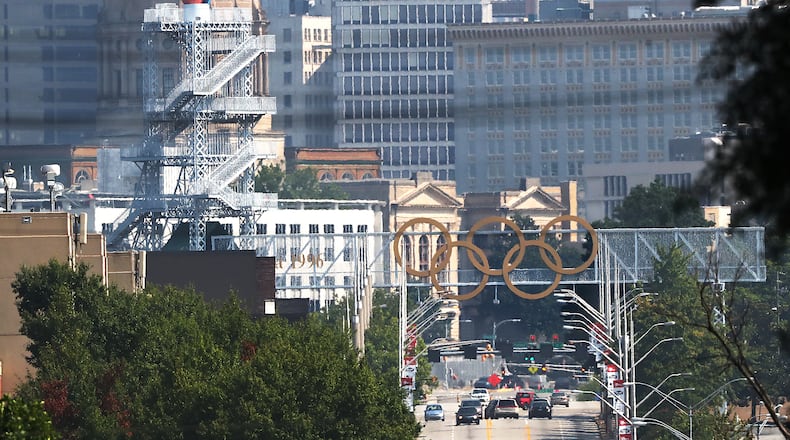The 2024 Olympics reminded the world of the splendor of the Games, and why Paris is one of the most celebrated and recognizable places in commerce and culture. That perfect combination gave the Olympics a resurrected light for a generation that saw viruses dampen the impact of the Games in Rio and Tokyo.
With Los Angeles next, the Summer Games will return to the United States, a first since Atlanta hosted the Centennial Olympics in 1996. As the conversation pivots to the legacy of the Paris Olympics and what’s to come in Los Angeles, it’s important to revisit the impact of Atlanta hosting the Games.
Credit: Handout
Credit: Handout
I’m part of a generation of children of the Atlanta Olympics. In September 1990, I was a sixth grade student in DeKalb County and joined hundreds of my elementary school classmates to hear the city announced as the host. The underdog won, famously beating Athens, Greece, the symbolic choice. Watching my school’s faculty, teachers and administrative staff erupt in celebration was unbelievable, unifying and a signal that things wouldn’t be the same.
In the field of economic development, particularly for sporting events, the Olympics are the highest endorsement one can receive. Costs aside, only the world’s greatest cities host the Summer Games. Places we know by single name and understand what they represent for global audiences. How places leverage the Olympics for both economic and intangible benefits give economists much ado.
Yet, I offer an alternative view on the 34 years the Olympics have been part of Atlanta’s history and evolution. Very rarely does a community get a firsthand view of the building and construction of a new industry that touches every aspect of society. The Centennial Olympics taught a generation of metro Atlanta students an important lesson: global ambition.
For a six-year period, a local news cycle dominated by the crime wave ills of the early 1990s, an undeniably big economic and cultural story remained front and center and above the fold. Atlanta had global assets in 1990. The world’s busiest airport, major international firms and nongovernmental organizations and icons in culture and global politics. Yet, with the Confederate cross on the state’s flag and just a few decades since the Civil Rights Movement, the question of how much things had changed was still a verdict pending. Atlanta powered through and set the foundation for the Games in a new millennium.
The city’s physical transformation, with the construction of nine new venues and the refurbishing of 14 existing venues, set a path for continued development. Major Atlanta brands stepped forward and thousands of corporate volunteers offered up their time. At a time when very few minority contractors could vie for opportunities at this scale, notable Black firms like H.J. Russell and C.D. Moody won major deals. The event was truly regional with sports in neighboring cities, rural communities and a torch relay that circled throughout the state and metro area.
Months before the Opening Ceremony, and the summer of my senior year in high school, local contractors hired thousands of workers (including students) to serve millions of visitors. It’s a blueprint for so many contemporary approaches to inclusive economic development in which the benefits are widely shared and the opportunities accessible at every level.
As a torch made its way to the Olympic Stadium, I stood outside City Hall as former Mayor Maynard Jackson held it high. The giant of history marked a milestone for Atlanta in the same way Muhammad Ali’s torch moment marked for the world.
New stadiums would reshape the sports experience for the professional teams and the college campuses, including the HBCUs. Atlanta is now a leading sports market. Centennial Olympic Park, one of the largest urban revitalization projects of its time, paved the way for the cluster of attractions that now draw millions of people to downtown Atlanta. The Olympic Village would pivot downtown colleges into hubs of residential activity.
As the world’s hub for civil rights and Black contemporary culture, it is distinct in being the only host city rooted in African or African American culture to host the Games when that really mattered and when it made a difference on the sporting fields and in economic impact reports. And, most important, in shaping what’s possible for children coming of age.
Mark Anthony Thomas is an Atlanta native and serves as the CEO of the Greater Baltimore Committee.
About the Author
Keep Reading
The Latest
Featured



